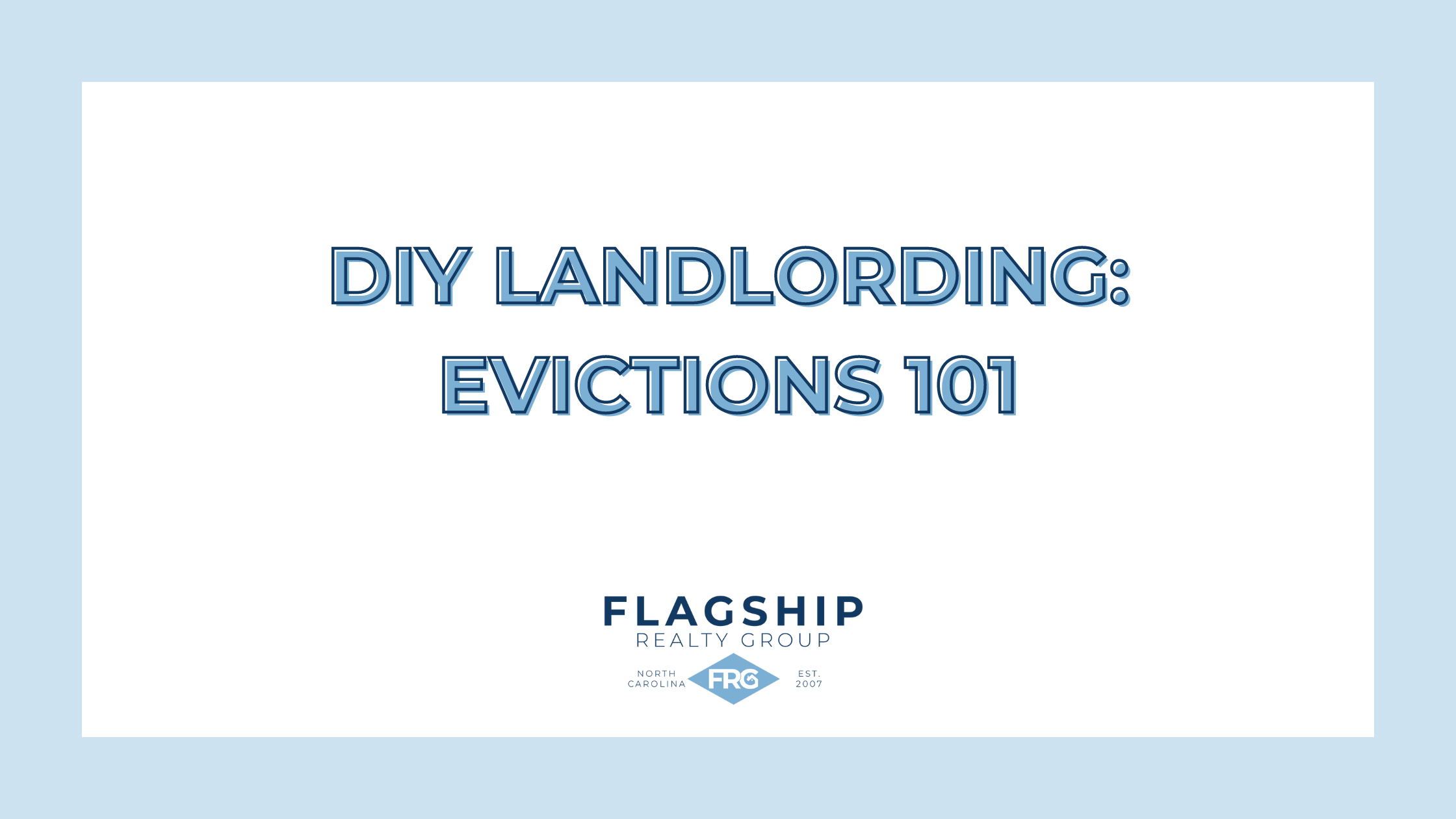Your Ultimate Guide to Stress-Free Evictions – Unlocking the Process with Flagship Realty Group
Are you grappling with the intricacies of the eviction process? Whether you're a property owner seeking clarity or a hands-on landlord, Flagship Realty Group is here to empower you with a comprehensive step-by-step eviction guide – all at no cost. While professional property management relieves you of this responsibility, our Evictions 101 guide offers valuable insights into your role in the eviction process. At Flagship Realty Group, we've crafted a full-service property management company with a focus on investors' needs. If you're situated between Goldsboro, NC, and Greenville, NC, in the Eastern North Carolina area, don't hesitate to reach out to us for Goldsboro Property Management or Greenville Property Management. Our expertise also extends to Ayden Property Management, Farmville Property Management, Winterville Property Management, La Grange Property Management, Mt. Olive Property Management, Rosewood Property Management, Pikeville Property Management, Havelock Property Management, New Bern Property Mangement, Morehead City Property Management, Wilson Property Management, and Snow Hill Property Management.
For specific legal information, always consult a lawyer or visit your county's courthouse.
Step 1: Understanding When & Why to Evict
As a landlord, it's crucial to discern the valid reasons for eviction. Lease violations or unlawful activities serve as grounds for eviction, while issues like infrequent trash disposal or lawn maintenance don't justify eviction.
Certain steps must precede legal action. Notify the tenant of the violation and provide a grace period, if necessary. In cases of non-payment of rent, this window allows the tenant to rectify the situation. After following these steps, you can initiate the eviction process through the courthouse.
Step 2: Exploring the Reasons for Eviction
Building on the foundation laid in step one, we delve into various reasons for potential evictions. Apart from lease violations, engaging in unlawful activities is a valid eviction reason.
Potential Lease Violations:
Non-Payment of Rent
Unauthorized Roommates
Unauthorized Pets
Negligent Damages
Illegal Activities
Violation of HOA or City/County Codes
At Flagship Realty Group, we adhere to a five-day time frame for tenants to address these concerns.
Step 3: Navigating Where & How to Evict
First, you need to complete eviction paperwork, which can be filled out at home or in the eviction office. A checklist of necessary items is available for download.
Items include:
Stamped Envelope (for each tenant)
Eviction Filing Form
Appointment Card
Payment Options
Eviction steps and locations differ by county and state.
Step 4: Unveiling the Next Steps
With paperwork and payment sorted, you've successfully filed an eviction. Keep an eye on your self-addressed envelope for further instructions, detailing your court appearance date. Familiarize yourself with the courtroom's location, and prepare all necessary documents.
Step 5: Essential Courtroom Essentials
Ensure you're well-equipped for your court date by referring to our downloadable checklist. Being organized and prepared is key.
Documents to bring:
Lease Agreement Copy
Eviction Filing Papers Copy
Up-to-date Tenant Ledger
Late or Lease Violation Letters
Visual Evidence (e.g., photos)
Correspondence Records (emails, texts)
Step 6: Navigating the Day of Court
Navigating the courtroom on your court date is less intimidating with proper preparation. Arrive early, park, and adhere to security requirements. Swear in, explain your case to the judge, and provide requested documents. Remember, patience and respect are crucial.
Step 7: Post-Court Proceedings
If you've followed the process correctly, you may have won your case:
Valid reason for eviction
Correct eviction filing
Adhered to legal notices and grace periods
Presented your case professionally in court
Following the court ruling, tenants typically have ten business days to vacate or appeal. For unpaid rent, the tenant can remedy the situation within this period, but if you opt not to accept payment, you can proceed to schedule a writ of possession.
Step 8: Finalizing with a Writ of Possession
The ultimate eviction step is the writ of possession, granted after court approval. This grants legal access to the property, allowing you to change locks and secure the premises. Even if the tenant has departed, it's wise to schedule a writ of possession to ensure no unauthorized access.
At Flagship Realty Group, our commitment is to guide you through every property management aspect, including the complex eviction process. If you're between Goldsboro and Greenville in Eastern North Carolina, we're your local experts. Contact us today to explore Goldsboro Property Management, Greenville Property Management, and more. Your stress-free property ownership journey begins with Flagship Realty Group.
So come visit us at Flagship Realty Group or give us a call at 252.364.4944 today to find the best care for your valuable property!



